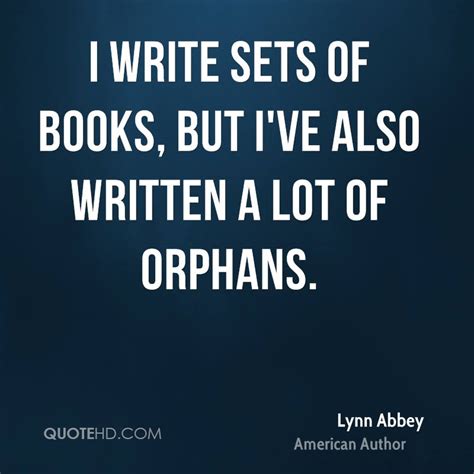A Quote by Jay Chandrasekhar
History is ultimately storytelling. I think the more stories you write in life - and I've written a lot of screenplays, a lot of short stories - you realize it's your interpretation of events that people read, and they absorb that.
Related Quotes
Dialogue that is written in dialect is very tiring to read. If you can do it brilliantly, fine. If other writers read your work and rave about your use of dialect, go for it. But be positive that you do it well, because otherwise it is a lot of work to read short stories or novels that are written in dialect. It makes our necks feel funny.
These are the moments. These are the moments where you realize love is everywhere if you look closely. When you realize happiness isn't next weekend, and it's not last week, it's right now. That was one of the best nights of my life. It felt good to know purpose. I lay in my bunk and I think of all the stories I'm in. I think about all the stories that are in my story. I think about all the stories that are left to be written. And it might be my favorite book yet.
I'm one of those writers who started off writing novels and came to writing short stories later, partly because I didn't have the right ideas, partly because I think that short stories are more difficult. I think learning to write short stories also made me attracted toward a paring down of the novel form.
I was familiar with Lovecraft, I also was familiar with his history as a person. So I had read his stories but I wasn't bananas like I think that a lot of people get bananas. I was like, they're good and I can definitely see the influences - but I can definitely read them and see the parts where you're being racist right there in your own stories.
Many people don’t realize the extent to which stories influence our behavior and even shape our culture. Think about how Bible stories teach the fundamentals of religion and rules of conduct. Think of the fables and parables that molded your values. Think of how stories about your national, cultural or family history have shaped your attitudes about yourself and others.



































